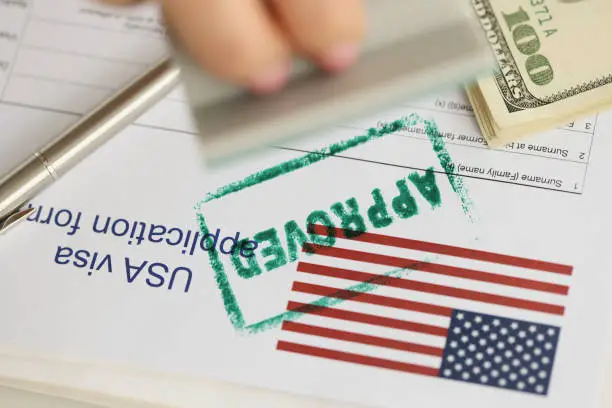Government Grants for Free Cars provide essential accessibility and socioeconomic opportunities for low-income and disabled individuals. These grants, offered by government programs, nonprofits, and philanthropic organizations, help fund vehicle purchases or necessary modifications. By enhancing mobility and access to employment, education, and healthcare, these subsidies significantly improve the quality of life and independence.
Understanding the eligibility criteria and application process is crucial for applicants.
Here’s a detailed guide on navigating the process to find and apply for government aid programs for vehicle purchases.
Benefits of Government Grants for Cars
Car grants from government agencies, nonprofits, and private foundations provide crucial support for low-income individuals to purchase a vehicle. This support enhances mobility, access to jobs, education, and healthcare.
- Government car grants improve the transportation needs of low-income families and individuals, enhancing their mobility and quality of life.
- Having a car allows individuals to pursue job opportunities that are not easily accessible via public transportation, such as those farther from home or in areas with limited transit options.
- Reliable transportation is essential for accessing educational opportunities, attending classes, and participating in extracurricular activities, all contributing to professional and personal growth.
- For those living in remote or underserved areas, having a car is vital for reaching medical appointments, pharmacies, and emergency services.
- Government car grants enable individuals and families to become more self-sufficient, reducing reliance on public assistance programs by meeting their transportation needs independently.
- Government grants help low-income individuals purchase cars, stimulating the automotive industry, increasing sales, and supporting businesses like auto insurance and repair shops.
Eligibility for Getting Government Grants for Cars
To qualify for government car grants, applicants typically need to meet specific criteria.
Income Eligibility
- Household income generally must be below 200% of the federal poverty line.
- This ensures assistance is directed to those most in need.
Residency Status
- Applicants must usually be citizens or permanent residents.
- Priority may be given to those living in areas with limited public transportation.
Employment Status
- Employment status or proof of financial hardship may be required.
- Consideration is given to unemployed or underemployed individuals.
Family Size
- Eligibility often accounts for family size, with larger families potentially receiving more consideration.
- The number of dependents is a factor in determining assistance.
Quality of Life Improvement
- Demonstrating how having a car will significantly improve one’s standard of living can strengthen an application.
- This includes healthcare access, education, childcare, and employment opportunities.
Specific Program Requirements
- Each grant program may have unique requirements in addition to standard ones.
- Thoroughly research and understand the program’s prerequisites before applying.
Documents Required for Getting a Car Grant From the Government
Applicants need to provide various documents to support their application for a government car grant.
Proof of Income
- Recent tax returns, pay stubs, or proof of government assistance.
Proof of Residency
- Documents such as a driver’s license, lease agreement, or utility bills.
Identification Documents
- Valid ID like a passport, driver’s license, or state-issued ID card.
Proof of Disability (if applicable)
- Medical certification or doctor’s note supporting the disability claim.
Vehicle Information
- Details of the vehicle, including year, make, model, and VIN (Vehicle Identification Number).
Employment Information
- Evidence of employment or financial need related to education or work.
Budget or Financial Statement
- Financial documents detailing the necessity of the grant.
Application Form
- Complete the application form provided by the grant program accurately.
Any Additional Required Documents
- Additional documents as specified by the grant program, such as proof of vehicle insurance or credit report.
List of Government Grants for Cars
While there is no direct federal program for free cars, several grants and assistance programs help individuals purchase a vehicle.
1. National Association of State Directors of Vocational Rehabilitation (NASDVRT)
- Supports modifications for safe driving, like ramps and hand controls, and occasionally covers vehicle costs for essential purposes.
2. Automobile Allowance Program
- Reimburses employees for using their vehicles for business, benefiting both employers and employees.
3. Low-Income Vehicle Assistance Programs (LIVAP)
- Overseen by the U.S. Department of Transportation, providing states with funds to help low-income individuals purchase or repair vehicles.
4. The Clean Vehicle Assistance Program (CVA Program) in California
- Helps low-income individuals in underserved areas purchase clean vehicles, promoting economic growth and environmental benefits.
Charity Programs That Offer Free Cars
- Organizations like Cars4Heroes, Cars4Christmas, Good News Garage, Working Cars For Working Families, and 1-800-Charity Cars provide vehicle grants to those in need.
How to Apply for Government Grants to Get a Car Grant
Follow these steps to apply for a government car grant:
Research Eligibility Requirements
- Identify local government car grants and their eligibility criteria.
Assemble Required Documents
- Gather necessary documents like proof of income, residency, identification, and employment status.
Locate Appropriate Programs
- Find grant programs that meet your needs and eligibility criteria.
Complete the Application Form
- Accurately and thoroughly fill out the application form, following all instructions.
Submit Your Application
- Submit the application and required documents as instructed, whether online, by mail, or in person.
Follow Up
- Confirm receipt of your application and check on its status.
Await Approval
- Wait for the grant program administrators to review your application.
Receive Grant Aid
- Once approved, follow the program’s instructions to receive the grant aid.
Adhere to Program Requirements
- Maintain compliance with any ongoing responsibilities associated with the grant.
Successful Case Study: How Jane Secured a Government Free Car Grant
Background
Jane, a single mother living in a rural area, struggled to balance her responsibilities. With limited access to public transportation, she faced challenges in commuting to work, taking her children to school, and attending medical appointments. Her low income made it difficult to afford a car, leaving her in a difficult situation.
Identifying the Need
Jane realized that having a reliable vehicle would significantly improve her and her children’s quality of life. She researched various options and discovered government free car grants that could help her achieve this goal. Motivated by the potential to gain independence and better opportunities, Jane decided to apply for a car grant.
Research and Preparation
Jane began by researching the eligibility criteria for different car grant programs. She focused on grants specifically designed for low-income families and single parents. Jane identified the Clean Vehicle Assistance Program (CVA Program) in California as a suitable option.
Gathering Required Documents
To strengthen her application, Jane gathered all necessary documents:
- Proof of Income: Jane collected her recent tax returns and pay stubs.
- Proof of Residency: She provided utility bills and her driver’s license.
- Identification Documents: Jane used her state-issued ID card.
- Employment Information: She included a letter from her employer confirming her employment status.
- Budget Statement: Jane prepared a detailed financial statement outlining her expenses and income.
Completing the Application
Jane carefully completed the application form for the CVA Program. She provided accurate information, ensuring there were no errors or omissions. Jane also included a heartfelt letter explaining how the grant would significantly improve her family’s quality of life by providing reliable transportation.
Submitting the Application
Following the application instructions, Jane submitted her application and all required documents online. She made sure to keep copies of everything for her records.
Follow-Up and Patience
After submitting her application, Jane followed up with the program administrators to confirm receipt and inquire about the status. She remained patient during the review process, understanding that it might take some time for the administrators to evaluate her application.
Receiving the Grant
A few weeks later, Jane received exciting news: her application had been approved! The CVA Program provided her with the funds to purchase a clean, reliable vehicle. Jane was overjoyed and grateful for the opportunity to improve her family’s life.
Conclusion
Government Car Grants provide essential support for low-income and disabled individuals, enhancing mobility and access to crucial services. By understanding eligibility requirements and following the application process, individuals can secure these grants, improving their independence and quality of life. These efforts also stimulate economic growth by supporting the automotive industry.
Recommended Books for Enhancing Grant Writing Skills
Here are a few recommended books:
- Advanced Grant Writing for Nonprofits : Focuses on sophisticated techniques for experienced grant writers. It delves into complex aspects of proposal development, offering strategies for dealing with competitive grant environments and large funding bodies.
- Crafting Nonprofit Annual Reports that Captivate: Strategies, Tools, and Examples for Success: This book offers a comprehensive guide for nonprofit organizations aiming to create impactful annual reports. It covers effective strategies, essential tools, and real-world examples to help organizations narrate their achievements and challenges compellingly. The guide emphasizes storytelling, visual communication, and stakeholder engagement, ensuring readers can produce reports that not only fulfill compliance requirements but also captivate and inspire donors, volunteers, and the community at large.
- The Ultimate Guide to Federal Grant Applications: Techniques for Success: Navigating the complexities of federal grant applications can be daunting for many nonprofits. This essential guide demystifies the process, offering step-by-step techniques for success. It covers everything from understanding eligibility criteria to crafting persuasive proposals, managing submissions, and complying with reporting requirements. The book is designed to help nonprofit professionals maximize their chances of securing federal funding by providing practical tips, checklists, and examples of successful applications.
- Nonprofit Strategic Planning : Strategic planning is crucial for the growth and sustainability of any nonprofit organization. This book serves as an invaluable resource for leaders and managers looking to develop and implement effective strategic plans. It covers the fundamentals of strategic planning, including goal setting, environmental scanning, strategy formulation, implementation, and evaluation. Through practical advice, tools, and case studies, readers will learn how to align their organization’s mission with its strategic goals, ensuring long-term success and impact.
- Mastering Grant Writing: A Nonprofit’s Guide to Effective Proposal Development and Submission: This book serves as a comprehensive guide, covering the entire process of grant writing. It includes tips on understanding funders’ perspectives, crafting compelling narratives, and the nuances of proposal submission.
- Becoming the Grant Guru: Freelancer’s Guide to Success : Tailored for freelance grant writers, this book provides insights into building a successful career in grant writing. It includes strategies for finding clients, managing projects, and maximizing the impact of grant proposals.
- The Small Business’s Guide to Winning Grants : This resource is particularly useful for small businesses looking to secure grants. It offers practical advice on identifying suitable grant opportunities, understanding the requirements of small business grants, and crafting winning proposals.
- Grant Readiness Guide: Preparing to Triumph in Funding Opportunities : A comprehensive resource for organizations at various stages of grant preparedness. It provides a roadmap for developing organizational capacity, aligning projects with funders’ goals, and creating compelling applications.
- Her Capital: Unlocking Women’s Small Business Grants: Specifically designed for women entrepreneurs, this book offers guidance on navigating the landscape of small business grants for women. It includes insights into grant sources, application strategies, and tips for leveraging grants to grow a business.





9apisologin https://www.it9apisologin.com
pagcor https://www.ngpagcor.net